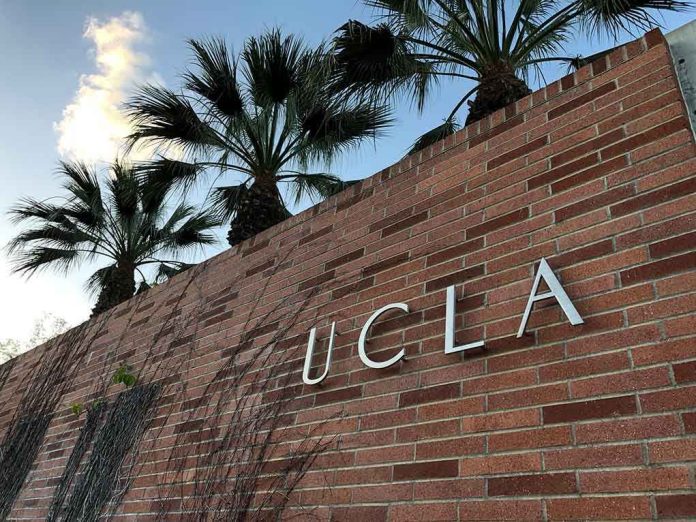
In a shocking revelation, UCLA’s failure to protect Jewish students from antisemitic threats during a 2024 encampment has led to a massive federal settlement, demanding urgent reforms.
At a Glance
- UCLA found “deliberately indifferent” to antisemitic threats by DOJ.
- Settlement exceeds $6 million; mandates significant reforms.
- Federal findings highlight serious lapses in campus safety policies.
- Case sets a precedent for handling antisemitism and student safety on campuses nationwide.
UCLA’s Indifference Exposed
The U.S. Department of Justice (DOJ) has uncovered a disturbing truth at UCLA: the university acted with “deliberate indifference” to antisemitic threats faced by Jewish students during a pro-Palestinian encampment in 2024. This damning revelation comes after extensive federal investigation, spotlighting UCLA’s failure to safeguard its students’ rights. The DOJ’s findings underscore a blatant disregard for student safety and civil rights, resulting in one of the largest settlements of its kind, with UCLA agreeing to pay over $6 million and implement critical reforms.
The encampment, which began in spring 2024, quickly descended into chaos, with reports of antisemitic incidents, including a “Jew Exclusion Zone,” becoming alarmingly frequent. Jewish students and faculty, feeling threatened and marginalized, filed complaints and lawsuits, accusing the university of neglecting their safety concerns. As the situation escalated, the DOJ stepped in, launching a thorough investigation that culminated in a scathing report released on July 29, 2025.
Settlement and Reforms
In response to the DOJ’s findings, UCLA has agreed to a settlement exceeding $6 million, a significant portion of which will be directed to Jewish organizations affected by the university’s inaction. Additionally, UCLA is mandated to undertake comprehensive reforms to prevent future occurrences of such negligence. These reforms include implementing robust training programs, revising campus safety policies, and establishing monitoring mechanisms to ensure compliance with federal civil rights laws.
The settlement marks a crucial turning point, not only for UCLA but also for universities nationwide, as it sets a precedent for how campuses should address and prevent antisemitism and other forms of discrimination. The implications of this case extend far beyond financial repercussions, as it raises serious questions about the balance between free speech and the protection of students from hate and discrimination.
National Implications and Reactions
The UCLA case has ignited a national debate over the handling of campus protests and the responsibility of educational institutions to ensure the safety and inclusivity of all students. The DOJ’s intervention signals a shift towards stricter federal oversight, urging universities to reassess their policies and practices concerning student safety and civil rights compliance.
Jewish advocacy organizations have welcomed the DOJ’s actions, viewing them as a necessary step towards ensuring justice and accountability. Meanwhile, some student activists express concerns over potential overreach and the impact on free speech and protest rights. The tension between maintaining a platform for diverse voices and safeguarding students from hate speech continues to be a contentious issue, with this case serving as a critical focal point.
Looking Ahead
As UCLA embarks on its journey of reform, the broader academic community watches closely. The outcomes of this case will likely influence how universities approach campus safety, protest management, and discrimination complaints in the future. The DOJ’s decisive stance underscores the importance of protecting students from hate and exclusion, setting a new standard for university accountability.
In the wake of this settlement, universities across the country must confront the reality that inaction in the face of discrimination is not an option. The imperative to create safe and inclusive educational environments has never been more urgent, and the lessons from UCLA’s experience will undoubtedly shape the future of campus governance.


